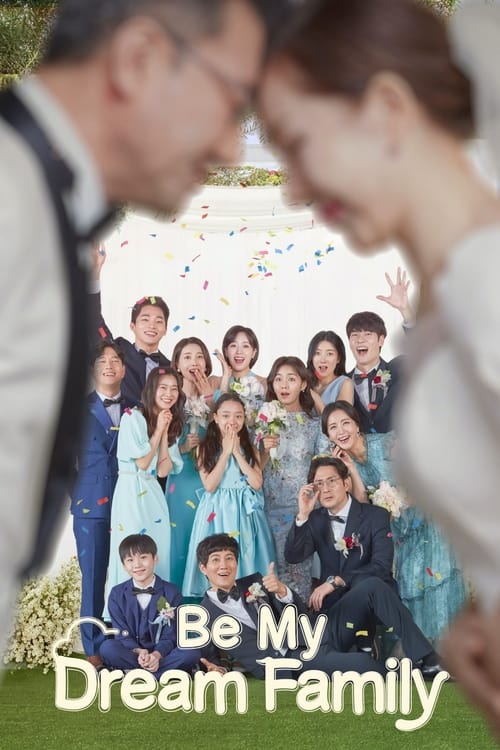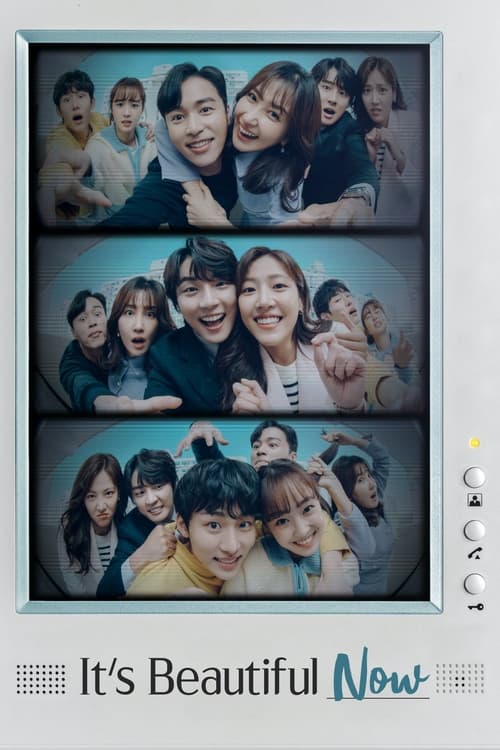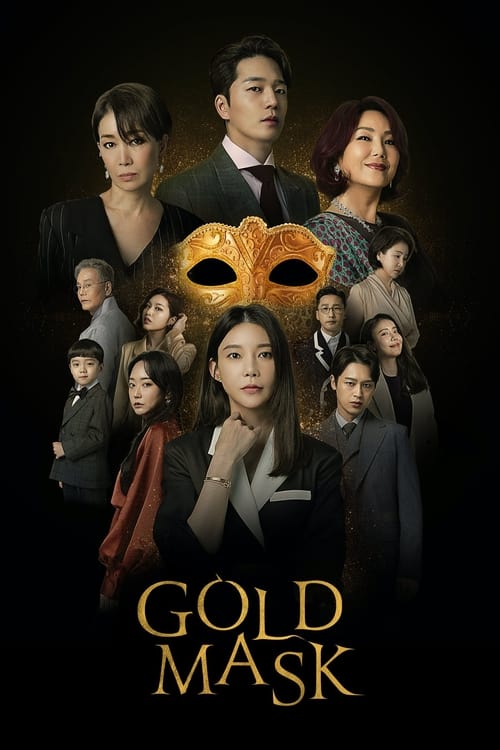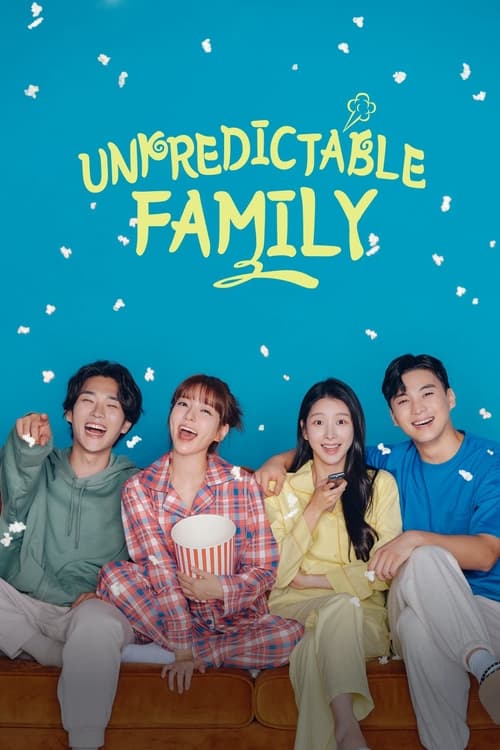
Ask Your Own Question
What is the plot?
In the opening scene of "Episode 3," the camera pans over a bustling market where the three sisters, Jin-hee, Jin-sook, and Jin-young, are seen navigating through the crowd. They are on a mission to gather supplies for their family's struggling business. As they move through the stalls, their interactions reveal the tension between them, particularly between Jin-hee and Jin-sook, who have differing views on how to handle their financial troubles. Jin-hee is optimistic and believes in hard work, while Jin-sook is more pragmatic and suggests they consider more drastic measures.
The scene shifts to their home, where their mother, who is visibly stressed, is trying to manage the household. She expresses her concerns about the family's financial situation, which adds to the sisters' pressure. Jin-young, the youngest, tries to lighten the mood with humor, but the underlying tension remains palpable. The sisters argue about their responsibilities, and Jin-sook accuses Jin-hee of being naive. This argument sets the stage for the sisters' differing motivations and the strain on their relationships.
Later, the sisters receive a visit from a local businessman, Mr. Park, who offers them a deal that could potentially save their business. He proposes a partnership but hints at some morally questionable practices that make Jin-hee uncomfortable. Jin-sook, however, sees this as a necessary step and pushes for them to accept the offer. The disagreement escalates, and Jin-hee storms out, feeling betrayed by her sister's willingness to compromise their values.
In the next scene, Jin-hee seeks solace at a nearby park, where she encounters an old friend, Min-jun. Their conversation reveals Jin-hee's internal conflict about the family's situation and her desire to uphold their integrity. Min-jun encourages her to stand firm in her beliefs, which strengthens Jin-hee's resolve to find a solution that aligns with her values.
Back at home, Jin-sook and Jin-young discuss the partnership with Mr. Park in Jin-sook's room. Jin-sook is adamant about moving forward, believing it is the only way to secure their future. Jin-young, caught in the middle, expresses her concerns but ultimately sides with Jin-sook, fearing the consequences of failure. This moment highlights the growing divide between the sisters and foreshadows the conflict that will arise from their differing choices.
The following day, Jin-hee returns home to find that Jin-sook has already met with Mr. Park and agreed to the partnership without her consent. Furious, Jin-hee confronts Jin-sook, leading to a heated argument where Jin-sook accuses Jin-hee of being unrealistic. The confrontation escalates, and Jin-hee, feeling betrayed, decides to take matters into her own hands. She secretly begins to explore alternative ways to save their business, including reaching out to other potential investors.
As the episode progresses, Jin-hee's determination leads her to a local community meeting where she learns about a grant program for small businesses. Inspired, she decides to apply, believing this could be the solution they need. However, she faces challenges in gathering the necessary documentation and support from her sisters, who are still focused on the partnership with Mr. Park.
In a pivotal scene, Jin-hee presents her plan to Jin-sook and Jin-young, but they dismiss her efforts, believing that the partnership is the only viable option. Feeling isolated, Jin-hee resolves to go through with the grant application on her own, which further strains her relationship with her sisters. This decision marks a turning point in the episode, as it highlights the growing rift between the sisters and sets the stage for future conflicts.
The climax of the episode occurs when Jin-hee receives news that her grant application has been accepted, but she must present her business plan at a community event. Excited yet anxious, she prepares for her presentation, hoping to prove to her sisters that there is a better way forward. Meanwhile, Jin-sook learns about Jin-hee's success and feels threatened, fearing that Jin-hee's achievement could undermine her own decisions regarding Mr. Park.
The episode concludes with the community event, where Jin-hee delivers her presentation with passion and conviction. The audience responds positively, and she gains the support of several local business owners. However, as she looks out into the crowd, she spots Jin-sook and Jin-young, who appear conflicted and uncertain about their own choices. The episode ends on a cliffhanger, leaving viewers eager to see how the sisters will navigate their differences and the consequences of their decisions moving forward.
What is the ending?
In the ending of "Revolutionary Sisters," episode 3, the tensions between the sisters reach a boiling point. After a series of confrontations and revelations, they come to a fragile understanding of their individual struggles and the bonds that tie them together. The episode concludes with a moment of unity, as they decide to support each other despite their differences, setting the stage for future conflicts and resolutions.
As the episode unfolds towards its conclusion, the atmosphere is thick with unresolved emotions. The scene opens in the family home, where the sisters gather in the living room, the air heavy with unspoken words. Each sister is visibly affected by the events that have transpired throughout the episode. The eldest sister, who has been the de facto leader, stands with her arms crossed, her brow furrowed in frustration. She feels the weight of responsibility for her siblings, yet struggles with her own insecurities.
The second sister, who has often felt overshadowed, paces back and forth, her agitation palpable. She is torn between wanting to assert her independence and the fear of losing her family. Her voice trembles as she finally speaks up, expressing her feelings of inadequacy and the desire for recognition. This moment is pivotal, as it reveals her internal conflict and the longing for validation.
The youngest sister, who has been more of a peacemaker throughout the episode, watches the exchange with a mix of concern and empathy. She steps forward, her eyes glistening with unshed tears, and urges her sisters to remember the love that binds them. Her plea resonates in the room, and for a moment, the tension dissipates. The sisters begin to share their vulnerabilities, recounting their struggles and fears, which leads to a deeper understanding of one another.
As they talk, the camera captures their expressions--anger, sadness, and ultimately, relief--as they begin to reconcile. The eldest sister, realizing the burden she has placed on herself, softens her stance and reaches out to her siblings. The second sister, still hesitant, takes a deep breath and accepts her sister's gesture, leading to a heartfelt embrace. The youngest sister joins in, and the three of them stand together, a united front against the challenges they face.
The episode closes with a montage of their shared moments, highlighting the importance of family and support. Each sister is shown in their individual spaces, reflecting on the conversation they had. The eldest sister is seen looking at old family photos, a smile breaking through her earlier frustration. The second sister is in her room, writing in a journal, her expression contemplative yet hopeful. The youngest sister is outside, watching the sunset, a sense of peace washing over her.
In the final moments, the sisters come together once more, this time with a renewed sense of purpose. They agree to face their challenges as a team, acknowledging that while they may have their differences, their bond is unbreakable. The screen fades to black, leaving the audience with a sense of hope for their future as they navigate the complexities of their lives together.
Is there a post-credit scene?
In "Episode 3" of "Revolutionary Sisters," there is indeed a post-credit scene that adds an intriguing layer to the episode's narrative.
As the credits roll, the scene opens with a dimly lit room where a group of individuals is gathered around a table strewn with documents and photographs. The atmosphere is tense, filled with hushed whispers and furtive glances. The camera pans slowly, revealing the faces of the characters, each displaying a mix of determination and anxiety.
One character, a woman with sharp features and an intense gaze, stands up and addresses the group. Her voice is low but firm, conveying a sense of urgency. She speaks about the need for a strategic plan to counter the recent developments that have threatened their cause. The stakes are high, and the weight of their mission hangs heavily in the air.
As she outlines their next steps, the camera zooms in on a photograph she places on the table. It's a close-up of one of the main characters from the series, looking vulnerable yet resolute. This moment hints at a deeper connection and potential conflict that will unfold in future episodes.
The scene ends with a lingering shot of the group, their faces illuminated by a single overhead light, symbolizing the hope and struggle that lies ahead. The tension in the room is palpable, leaving viewers with a sense of anticipation for what is to come.
What conflict arises between the sisters in Episode 3?
In Episode 3, the sisters face a significant conflict regarding their differing views on how to handle their family's legacy. The tension escalates as each sister's personal motivations and past grievances come to the forefront, leading to heated arguments that reveal deeper emotional wounds.
How does the character of Ji-won evolve in this episode?
In this episode, Ji-won grapples with her feelings of inadequacy and her desire to prove herself to her family. Her internal struggle is highlighted through her interactions with her sisters, where she oscillates between seeking their approval and asserting her independence, ultimately leading to a pivotal moment of self-realization.
What role does the family business play in the sisters' dynamics in Episode 3?
The family business serves as a central point of contention in Episode 3, symbolizing the sisters' differing aspirations and values. As they discuss its future, the stakes become personal, revealing how each sister's relationship with their parents influences their decisions and deepens the rift among them.
How does the episode explore the theme of betrayal among the sisters?
Betrayal is a key theme in Episode 3, particularly when one sister makes a decision that undermines another's trust. This act of betrayal is not just a plot device but is deeply rooted in their shared history, showcasing how past grievances can resurface and complicate their relationships.
What emotional moment occurs between the sisters towards the end of Episode 3?
Towards the end of Episode 3, a poignant emotional moment occurs when the sisters confront their shared pain and vulnerabilities. This moment of vulnerability leads to a fragile reconciliation, as they begin to understand each other's perspectives, hinting at the possibility of healing their fractured bonds.
Is this family friendly?
In "Episode 3" of "Revolutionary Sisters," there are several scenes and themes that may be considered potentially objectionable or upsetting for children or sensitive viewers.
-
Family Conflict: The episode features intense family dynamics, including arguments and emotional confrontations that may be distressing for younger viewers.
-
Themes of Betrayal: There are moments that explore feelings of betrayal among family members, which could evoke strong emotional reactions.
-
Emotional Struggles: Characters experience significant emotional turmoil, including sadness and frustration, which may be heavy for sensitive audiences.
-
Societal Issues: The episode touches on societal pressures and expectations that can lead to stress and anxiety, which might be difficult for younger viewers to fully understand.
-
Dramatic Tension: There are scenes with heightened dramatic tension that could be unsettling, particularly for those who are sensitive to conflict or emotional distress.
These elements contribute to the overall emotional weight of the episode, making it potentially challenging for children or those who are particularly sensitive to such themes.






























